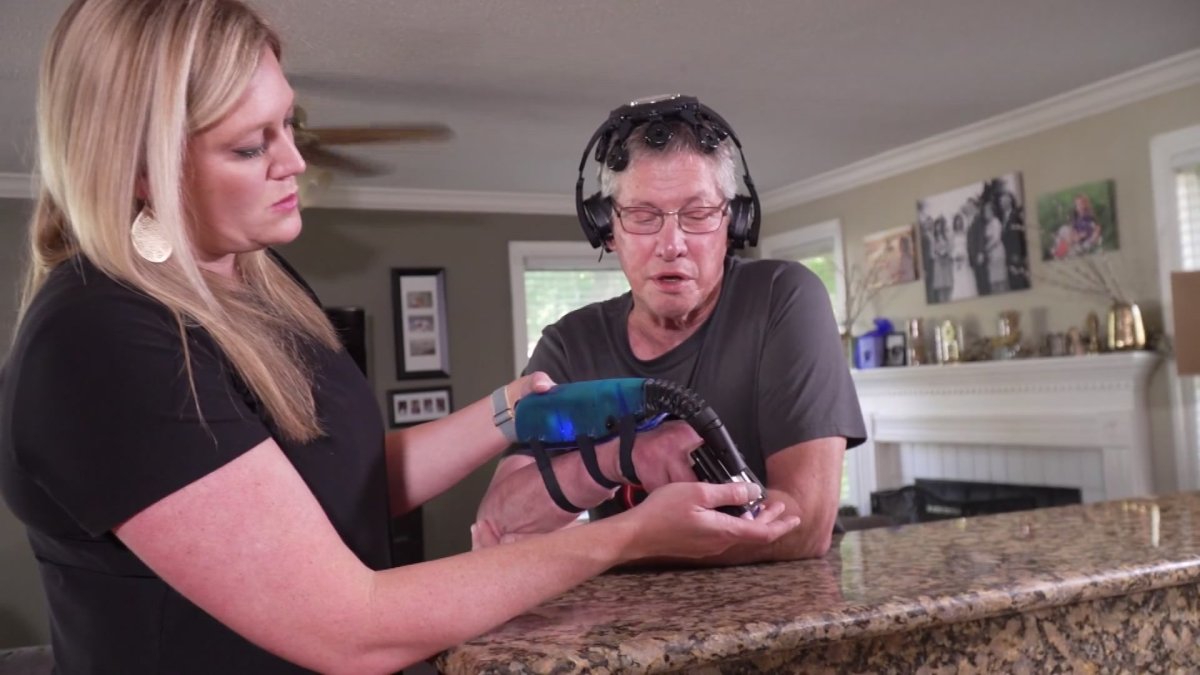
A stroke can impact a person’s ability to walk, to move and to speak. For most patients recovery plateaus after six months of therapy, but a new brain-controlled breakthrough device is helping people regain the use of their hands years, even decades, after their stroke. Bianca Castro reports.
What to Know
- Every 40 seconds someone in the United States suffers a stroke.
- IpsiHand is the first FDA-cleared brain-computer interface for chronic stroke survivors.
- Anyone who suffered a stroke but has good cognitive function could be a candidate for the exoskeleton device.
A stroke can impact a person's ability to walk, move and speak, but a new brain-controlled breakthrough device is helping people regain the use of their hands years, even decades, after their stroke.
Mark Forrest was active and loved to fish until he suffered a stroke six years ago.
"By the time I got to the hospital, my whole right side was dead," Mark Forrest said.
Get DFW local news, weather forecasts and entertainment stories to your inbox. Sign up for NBC DFW newsletters.
During the next six months, Mark gained a little movement back but not much.
"I was getting really depressed," Forrest said. "I was like, 'I gotta figure out something.'"
Forrest turned to the first FDA-cleared brain-computer interface for chronic stroke survivors.
Health Connection
Get connected to a healthier life.
"This is the robotic exoskeleton portion of the IpsiHand," said neurosurgeon Dr. Eric Leuthardt from Washington University School of Medicine in St. Louis.
Leuthardt created the exoskeleton that uses electrical signals in the brain to control hand movement.
"Their brain essentially relearns how to use a different part of the brain to affect control of that paralyzed hand," said Leuthardt.
A non-invasive headset picks up the brain signals through the scalp, sending the signals wirelessly to the robotic arm. A tablet walks the patient through exercises. Using the device for an hour a day, Mark regained some of the movement he'd lost.
"It's used to really retrain your brain to rewire your brain," said Leuthardt. "So, you don't need this system in the long run."
Forrest is now able to fish again and even built his own boat.
"It's just being out there is what I truly love, and I'm thankful I can do it," said Forrest.
Patients who had their stroke six months ago or even 10 years ago have seen improvement. Anyone who has suffered a stroke who has good cognitive function would be a candidate for this device. Neuroloutions, Inc. hopes to have it available to everyone next year and believes it will be covered by Medicare.